afterLoad (456.44KB) (4.86ms)
afterInitialise (1.27MB) (135ms)
afterRoute (870.38KB) (42.03ms)
beforeRenderComponent com_tags (20.38KB) (7.26ms)
afterRenderComponent com_tags (2.21MB) (279ms)
afterDispatch (27.08KB) (2.2ms)
beforeRenderRawModule mod_articles_category (READ MORE...) (372.12KB) (11.03ms)
Before Access::preloadComponents (all components) (56.7KB) (1.49ms)
After Access::preloadComponents (all components) (103.05KB) (1.37ms)
Before Access::getAssetRules (id:8 name:com_content) (840B) (17μs)
After Access::getAssetRules (id:8 name:com_content) (7.05KB) (38μs)
afterRenderRawModule mod_articles_category (READ MORE...) (5.08KB) (156ms)
beforeRenderRawModule mod_tags_popular (Search) (4.81KB) (23μs)
afterRenderRawModule mod_tags_popular (Search) (7.35KB) (126ms)
beforeRenderRawModule mod_custom (Remember to download Heart Healthy Seniors) (816B) (27μs)
afterRenderRawModule mod_custom (Remember to download Heart Healthy Seniors) (4.86KB) (237μs)
beforeRenderRawModule mod_custom (Get additionel and more detailed knowledge ) (752B) (12μs)
afterRenderRawModule mod_custom (Get additionel and more detailed knowledge ) (1.67KB) (26μs)
beforeRenderRawModule mod_custom (BOOST YOUR IMMUNE DEFENSE) (608B) (9μs)
afterRenderRawModule mod_custom (BOOST YOUR IMMUNE DEFENSE) (928B) (20μs)
beforeRenderRawModule mod_custom (Are you taking supplements) (736B) (9μs)
afterRenderRawModule mod_custom (Are you taking supplements) (1.03KB) (17μs)
beforeRenderRawModule mod_custom (Antiaging) (720B) (9μs)
afterRenderRawModule mod_custom (Antiaging) (1.02KB) (16μs)
beforeRenderRawModule mod_custom (Exercise) (720B) (8μs)
afterRenderRawModule mod_custom (Exercise) (1.02KB) (17μs)
beforeRenderRawModule mod_custom (Check this before you buy a Q10 product) (752B) (7μs)
afterRenderRawModule mod_custom (Check this before you buy a Q10 product) (944B) (17μs)
beforeRenderRawModule mod_custom (Chronic fatigue tied Alan to his bed but Q10 capsules saved him:) (245.53KB) (15.99ms)
afterRenderRawModule mod_custom (Chronic fatigue tied Alan to his bed but Q10 capsules saved him:) (960B) (46μs)
beforeRenderModule mod_custom (Chronic fatigue tied Alan to his bed but Q10 capsules saved him:) (768B) (4μs)
afterRenderModule mod_custom (Chronic fatigue tied Alan to his bed but Q10 capsules saved him:) (1.3KB) (69μs)
beforeRenderRawModule mod_custom (Cholesterol-lowering without side effects:) (368B) (11μs)
afterRenderRawModule mod_custom (Cholesterol-lowering without side effects:) (2.19KB) (21μs)
beforeRenderModule mod_custom (Cholesterol-lowering without side effects:) (752B) (2μs)
afterRenderModule mod_custom (Cholesterol-lowering without side effects:) (1.28KB) (7.07ms)
beforeRenderModule mod_articles_category (READ MORE...) (21.32KB) (367μs)
afterRenderModule mod_articles_category (READ MORE...) (1.25KB) (46μs)
beforeRenderModule mod_tags_popular (Search) (5.17KB) (14μs)
afterRenderModule mod_tags_popular (Search) (1.27KB) (24μs)
beforeRenderModule mod_custom (Remember to download Heart Healthy Seniors) (1.17KB) (11μs)
afterRenderModule mod_custom (Remember to download Heart Healthy Seniors) (1.3KB) (21μs)
beforeRenderModule mod_custom (Get additionel and more detailed knowledge ) (368B) (9μs)
afterRenderModule mod_custom (Get additionel and more detailed knowledge ) (1.3KB) (20μs)
beforeRenderModule mod_custom (BOOST YOUR IMMUNE DEFENSE) (224B) (9μs)
afterRenderModule mod_custom (BOOST YOUR IMMUNE DEFENSE) (1.28KB) (19μs)
beforeRenderModule mod_custom (Are you taking supplements) (352B) (8μs)
afterRenderModule mod_custom (Are you taking supplements) (1.28KB) (18μs)
beforeRenderModule mod_custom (Antiaging) (336B) (9μs)
afterRenderModule mod_custom (Antiaging) (1.27KB) (19μs)
beforeRenderModule mod_custom (Exercise) (336B) (8μs)
afterRenderModule mod_custom (Exercise) (1.25KB) (18μs)
beforeRenderModule mod_custom (Check this before you buy a Q10 product) (352B) (8μs)
afterRenderModule mod_custom (Check this before you buy a Q10 product) (1.28KB) (19μs)
beforeRenderRawModule mod_menu (Main menu-US) (20.94KB) (7.55ms)
afterRenderRawModule mod_menu (Main menu-US) (152.66KB) (4.64ms)
beforeRenderModule mod_menu (Main menu-US) (720B) (5μs)
afterRenderModule mod_menu (Main menu-US) (4.36KB) (62μs)
beforeRenderRawModule mod_languages (Sprogskift) (3.44KB) (16μs)
afterRenderRawModule mod_languages (Sprogskift) (26.87KB) (8.91ms)
beforeRenderModule mod_languages (Sprogskift) (720B) (5μs)
afterRenderModule mod_languages (Sprogskift) (5.31KB) (18μs)
beforeRenderRawModule mod_finder () (6.34KB) (10μs)
afterRenderRawModule mod_finder () (214.16KB) (16.23ms)
beforeRenderModule mod_finder () (704B) (4μs)
afterRenderModule mod_finder () (5.79KB) (31μs)
beforeRenderRawModule mod_custom () (6.62KB) (132μs)
afterRenderRawModule mod_custom () (22.64KB) (5.98ms)
beforeRenderModule mod_custom () (704B) (5μs)
afterRenderModule mod_custom () (1.23KB) (48μs)
beforeRenderRawModule mod_menu (Main menu-US) (5.07KB) (99μs)
afterRenderRawModule mod_menu (Main menu-US) (5.8KB) (1.95ms)
beforeRenderModule mod_menu (Main menu-US) (720B) (4μs)
afterRenderModule mod_menu (Main menu-US) (1.25KB) (49μs)
beforeRenderRawModule mod_languages (Sprogskift Mobil) (912B) (17μs)
afterRenderRawModule mod_languages (Sprogskift Mobil) (3.89KB) (5.65ms)
beforeRenderModule mod_languages (Sprogskift Mobil) (720B) (5μs)
afterRenderModule mod_languages (Sprogskift Mobil) (1.27KB) (34μs)
beforeRenderRawModule mod_finder () (2.3KB) (11μs)
afterRenderRawModule mod_finder () (6.29KB) (496μs)
beforeRenderModule mod_finder () (704B) (4μs)
afterRenderModule mod_finder () (1.23KB) (45μs)
beforeRenderRawModule mod_custom () (8.66KB) (167μs)
afterRenderRawModule mod_custom () (904B) (4.17ms)
beforeRenderModule mod_custom () (704B) (6μs)
afterRenderModule mod_custom () (2.43KB) (34μs)
beforeRenderRawModule mod_custom () (688B) (171μs)
afterRenderRawModule mod_custom () (896B) (167μs)
beforeRenderModule mod_custom () (704B) (3μs)
afterRenderModule mod_custom () (2.71KB) (26μs)
afterRender (372.21KB) (23.51ms)
| 1 x afterRenderComponent com_tags (2.21MB) (31.85%) | 278.89ms |
| 1 x afterRenderRawModule mod_articles_category (READ MORE...) (5.08KB) (17.79%) | 155.81ms |
| 1 x afterInitialise (1.27MB) (15.42%) | 135.02ms |
| 1 x afterRenderRawModule mod_tags_popular (Search) (7.35KB) (14.35%) | 125.62ms |
| 1 x afterRoute (870.38KB) (4.8%) | 42.03ms |
| 1 x afterRender (372.21KB) (2.68%) | 23.51ms |
| 1 x afterRenderRawModule mod_finder () (214.16KB) (1.85%) | 16.23ms |
| 1 x beforeRenderRawModule mod_custom (Chronic fatigue tied Alan to his bed but Q10 capsules saved him:) (245.53KB) (1.83%) | 15.99ms |
| 1 x beforeRenderRawModule mod_articles_category (READ MORE...) (372.12KB) (1.26%) | 11.03ms |
| 1 x afterRenderRawModule mod_languages (Sprogskift) (26.87KB) (1.02%) | 8.91ms |
| 1 x beforeRenderRawModule mod_menu (Main menu-US) (20.94KB) (0.86%) | 7.55ms |
| 1 x beforeRenderComponent com_tags (20.38KB) (0.83%) | 7.26ms |
| 1 x afterRenderModule mod_custom (Cholesterol-lowering without side effects:) (1.28KB) (0.81%) | 7.07ms |
| 1 x afterRenderRawModule mod_custom () (22.64KB) (0.68%) | 5.98ms |
| 1 x afterRenderRawModule mod_languages (Sprogskift Mobil) (3.89KB) (0.65%) | 5.65ms |
| 1 x afterLoad (456.44KB) (0.55%) | 4.86ms |
| 1 x afterRenderRawModule mod_menu (Main menu-US) (152.66KB) (0.53%) | 4.64ms |
| 1 x afterRenderRawModule mod_custom () (904B) (0.48%) | 4.17ms |
| 1 x afterDispatch (27.08KB) (0.25%) | 2.20ms |
| 1 x afterRenderRawModule mod_menu (Main menu-US) (5.8KB) (0.22%) | 1.95ms |
| 1 x Before Access::preloadComponents (all components) (56.7KB) (0.17%) | 1.49ms |
| 1 x After Access::preloadComponents (all components) (103.05KB) (0.16%) | 1.37ms |
| 1 x afterRenderRawModule mod_finder () (6.29KB) (0.06%) | 496μs |
| 1 x beforeRenderModule mod_articles_category (READ MORE...) (21.32KB) (0.04%) | 367μs |
| 1 x afterRenderRawModule mod_custom (Remember to download Heart Healthy Seniors) (4.86KB) (0.03%) | 237μs |
| 1 x beforeRenderRawModule mod_custom () (688B) (0.02%) | 171μs |
| 1 x beforeRenderRawModule mod_custom () (8.66KB) (0.02%) | 167μs |
| 1 x afterRenderRawModule mod_custom () (896B) (0.02%) | 167μs |
| 1 x beforeRenderRawModule mod_custom () (6.62KB) (0.02%) | 132μs |
| 1 x beforeRenderRawModule mod_menu (Main menu-US) (5.07KB) (0.01%) | 99μs |
| 1 x afterRenderModule mod_custom (Chronic fatigue tied Alan to his bed but Q10 capsules saved him:) (1.3KB) (0.01%) | 69μs |
| 1 x afterRenderModule mod_menu (Main menu-US) (4.36KB) (0.01%) | 62μs |
| 1 x afterRenderModule mod_menu (Main menu-US) (1.25KB) (0.01%) | 49μs |
| 1 x afterRenderModule mod_custom () (1.23KB) (0.01%) | 48μs |
| 1 x afterRenderRawModule mod_custom (Chronic fatigue tied Alan to his bed but Q10 capsules saved him:) (960B) (0.01%) | 46μs |
| 1 x afterRenderModule mod_articles_category (READ MORE...) (1.25KB) (0.01%) | 46μs |
| 1 x afterRenderModule mod_finder () (1.23KB) (0.01%) | 45μs |
| 1 x After Access::getAssetRules (id:8 name:com_content) (7.05KB) (0%) | 38μs |
| 1 x afterRenderModule mod_languages (Sprogskift Mobil) (1.27KB) (0%) | 34μs |
| 1 x afterRenderModule mod_custom () (2.43KB) (0%) | 34μs |
| 1 x afterRenderModule mod_finder () (5.79KB) (0%) | 31μs |
| 1 x beforeRenderRawModule mod_custom (Remember to download Heart Healthy Seniors) (816B) (0%) | 27μs |
| 1 x afterRenderRawModule mod_custom (Get additionel and more detailed knowledge ) (1.67KB) (0%) | 26μs |
| 1 x afterRenderModule mod_custom () (2.71KB) (0%) | 26μs |
| 1 x afterRenderModule mod_tags_popular (Search) (1.27KB) (0%) | 24μs |
| 1 x beforeRenderRawModule mod_tags_popular (Search) (4.81KB) (0%) | 23μs |
| 1 x afterRenderRawModule mod_custom (Cholesterol-lowering without side effects:) (2.19KB) (0%) | 21μs |
| 1 x afterRenderModule mod_custom (Remember to download Heart Healthy Seniors) (1.3KB) (0%) | 21μs |
| 1 x afterRenderRawModule mod_custom (BOOST YOUR IMMUNE DEFENSE) (928B) (0%) | 20μs |
| 1 x afterRenderModule mod_custom (Get additionel and more detailed knowledge ) (1.3KB) (0%) | 20μs |
| 1 x afterRenderModule mod_custom (Antiaging) (1.27KB) (0%) | 19μs |
| 1 x afterRenderModule mod_custom (Check this before you buy a Q10 product) (1.28KB) (0%) | 19μs |
| 1 x afterRenderModule mod_custom (BOOST YOUR IMMUNE DEFENSE) (1.28KB) (0%) | 19μs |
| 1 x afterRenderModule mod_custom (Exercise) (1.25KB) (0%) | 18μs |
| 1 x afterRenderModule mod_custom (Are you taking supplements) (1.28KB) (0%) | 18μs |
| 1 x afterRenderModule mod_languages (Sprogskift) (5.31KB) (0%) | 18μs |
| 1 x afterRenderRawModule mod_custom (Exercise) (1.02KB) (0%) | 17μs |
| 1 x Before Access::getAssetRules (id:8 name:com_content) (840B) (0%) | 17μs |
| 1 x afterRenderRawModule mod_custom (Are you taking supplements) (1.03KB) (0%) | 17μs |
| 1 x afterRenderRawModule mod_custom (Check this before you buy a Q10 product) (944B) (0%) | 17μs |
| 1 x beforeRenderRawModule mod_languages (Sprogskift Mobil) (912B) (0%) | 17μs |
| 1 x afterRenderRawModule mod_custom (Antiaging) (1.02KB) (0%) | 16μs |
| 1 x beforeRenderRawModule mod_languages (Sprogskift) (3.44KB) (0%) | 16μs |
| 3 x beforeRenderModule mod_custom () (704B) (0%) | 14μs |
| 1 x beforeRenderModule mod_tags_popular (Search) (5.17KB) (0%) | 14μs |
| 1 x beforeRenderRawModule mod_custom (Get additionel and more detailed knowledge ) (752B) (0%) | 12μs |
| 1 x beforeRenderRawModule mod_custom (Cholesterol-lowering without side effects:) (368B) (0%) | 11μs |
| 1 x beforeRenderModule mod_custom (Remember to download Heart Healthy Seniors) (1.17KB) (0%) | 11μs |
| 1 x beforeRenderRawModule mod_finder () (2.3KB) (0%) | 11μs |
| 1 x beforeRenderRawModule mod_finder () (6.34KB) (0%) | 10μs |
| 1 x beforeRenderRawModule mod_custom (BOOST YOUR IMMUNE DEFENSE) (608B) (0%) | 9μs |
| 1 x beforeRenderRawModule mod_custom (Are you taking supplements) (736B) (0%) | 9μs |
| 1 x beforeRenderRawModule mod_custom (Antiaging) (720B) (0%) | 9μs |
| 1 x beforeRenderModule mod_custom (Get additionel and more detailed knowledge ) (368B) (0%) | 9μs |
| 1 x beforeRenderModule mod_custom (BOOST YOUR IMMUNE DEFENSE) (224B) (0%) | 9μs |
| 1 x beforeRenderModule mod_custom (Antiaging) (336B) (0%) | 9μs |
| 2 x beforeRenderModule mod_menu (Main menu-US) (720B) (0%) | 9μs |
| 1 x beforeRenderModule mod_custom (Are you taking supplements) (352B) (0%) | 8μs |
| 1 x beforeRenderRawModule mod_custom (Exercise) (720B) (0%) | 8μs |
| 1 x beforeRenderModule mod_custom (Exercise) (336B) (0%) | 8μs |
| 1 x beforeRenderModule mod_custom (Check this before you buy a Q10 product) (352B) (0%) | 8μs |
| 2 x beforeRenderModule mod_finder () (704B) (0%) | 8μs |
| 1 x beforeRenderRawModule mod_custom (Check this before you buy a Q10 product) (752B) (0%) | 7μs |
| 1 x beforeRenderModule mod_languages (Sprogskift) (720B) (0%) | 5μs |
| 1 x beforeRenderModule mod_languages (Sprogskift Mobil) (720B) (0%) | 5μs |
| 1 x beforeRenderModule mod_custom (Chronic fatigue tied Alan to his bed but Q10 capsules saved him:) (768B) (0%) | 4μs |
| 1 x beforeRenderModule mod_custom (Cholesterol-lowering without side effects:) (752B) (0%) | 2μs |
 Sun awareness campaigns have scared people away from sun exposure because of the risk of skin cancer. Still, it is essential to get enough vitamin D from the sun during the summer period, as long as we avoid getting sunburned. Vitamin D is vital for our immune defense, mood, bone health, cancer prevention, and many other things. A Swedish study has revealed that lack of sunshine is every bit as dangerous as smoking, and according to a British study, vitamin D inhibits cellular ageing. A Danish study has even shown that lack of vitamin D increases the risk of early death. The big questions are how much vitamin D do we get from sun exposure during the summer period, when do we need to take vitamin D supplements, and why should old people, dark-skinned individuals, and certain other population groups take vitamin D all year round?
Sun awareness campaigns have scared people away from sun exposure because of the risk of skin cancer. Still, it is essential to get enough vitamin D from the sun during the summer period, as long as we avoid getting sunburned. Vitamin D is vital for our immune defense, mood, bone health, cancer prevention, and many other things. A Swedish study has revealed that lack of sunshine is every bit as dangerous as smoking, and according to a British study, vitamin D inhibits cellular ageing. A Danish study has even shown that lack of vitamin D increases the risk of early death. The big questions are how much vitamin D do we get from sun exposure during the summer period, when do we need to take vitamin D supplements, and why should old people, dark-skinned individuals, and certain other population groups take vitamin D all year round?







 Plant-based vegan diets have become increasingly popular among young adults and they even introduce these diets to their children. It is common knowledge that vegan diets lack vitamin B12, which is why many vegans take a supplement. However, a sizeable number of vegans also lack iodine, iron, zinc, and selenium. Most studies have looked at adults but it appears that children on vegan diets also risk metabolic changes, and they have lower blood levels of vitamins A and D compared with children on normal diets. This was demonstrated in a new study that is published in the esteemed international science magazine, EMBO Molecular Medicine.
Plant-based vegan diets have become increasingly popular among young adults and they even introduce these diets to their children. It is common knowledge that vegan diets lack vitamin B12, which is why many vegans take a supplement. However, a sizeable number of vegans also lack iodine, iron, zinc, and selenium. Most studies have looked at adults but it appears that children on vegan diets also risk metabolic changes, and they have lower blood levels of vitamins A and D compared with children on normal diets. This was demonstrated in a new study that is published in the esteemed international science magazine, EMBO Molecular Medicine. Babies and small children are less likely to develop croup if their mothers have taken high-dosed vitamin D and fish oil during their pregnancy, according to a Danish study, where scientists have studied this relation for the very first time. Vitamin D and fish oil also benefit the child’s immune defense and counteract the inflammation in the respiratory system that triggers croup. The two supplements even have a positive impact on the child’s bone health and nervous system, and they also help prevent asthma.
Babies and small children are less likely to develop croup if their mothers have taken high-dosed vitamin D and fish oil during their pregnancy, according to a Danish study, where scientists have studied this relation for the very first time. Vitamin D and fish oil also benefit the child’s immune defense and counteract the inflammation in the respiratory system that triggers croup. The two supplements even have a positive impact on the child’s bone health and nervous system, and they also help prevent asthma. Lack of vitamin D is rather common and is associated with a host of diseases that affect the teeth and gums. In children, a vitamin D deficiency may result in fragile teeth with weak enamel and an increased risk of cavities. Later in life, the vitamin deficiency may also increase the risk of periodontal disease and certain types of oral cancer, according to an article that is published in the scientific journal Nutrients. The authors refer to a number of clinical studies that point to vitamin D’s different functions with regard to dental health. Also, they mention that vitamin D deficiencies are widespread and write that it may be necessary to take a supplement for proper dental health.
Lack of vitamin D is rather common and is associated with a host of diseases that affect the teeth and gums. In children, a vitamin D deficiency may result in fragile teeth with weak enamel and an increased risk of cavities. Later in life, the vitamin deficiency may also increase the risk of periodontal disease and certain types of oral cancer, according to an article that is published in the scientific journal Nutrients. The authors refer to a number of clinical studies that point to vitamin D’s different functions with regard to dental health. Also, they mention that vitamin D deficiencies are widespread and write that it may be necessary to take a supplement for proper dental health. Vitamin D is essential for the immune defense but many of us are deficient of the nutrient during the dark winter period. The Danish Veterinary and Food Administration therefore recommends for everyone to take a vitamin D supplement in the winter months and that vulnerable population groups supplement all year round. Many people are unaware that being vitamin D-deficient contributes to new waves of COVID-19 and other types of viruses while increasing the risk of infections becoming complicated and life-threatening. This was demonstrated in multiple studies that have been published over the past 18 months. Leading scientists call for immediate action in terms of optimizing vitamin D levels in the population to help fight COVID-19 and other virus infections, simply because vaccines only have limited effect.
Vitamin D is essential for the immune defense but many of us are deficient of the nutrient during the dark winter period. The Danish Veterinary and Food Administration therefore recommends for everyone to take a vitamin D supplement in the winter months and that vulnerable population groups supplement all year round. Many people are unaware that being vitamin D-deficient contributes to new waves of COVID-19 and other types of viruses while increasing the risk of infections becoming complicated and life-threatening. This was demonstrated in multiple studies that have been published over the past 18 months. Leading scientists call for immediate action in terms of optimizing vitamin D levels in the population to help fight COVID-19 and other virus infections, simply because vaccines only have limited effect. Vitamin D is essential for the immune defense. Because deficiencies of the nutrient are becoming increasingly common and vaccines only have limited effect, we can expect new waves of COVID-19 during the winter period. Vitamin D counteracts chronic inflammation which is seen in rheumatoid arthritis, diabetes, and other chronic diseases. Multiple studies have shown a link between low blood levels of vitamin D and the occurrence of these diseases. In a new meta-analysis that is published in Molecular and Cellular Biochemistry, scientists look closer at the scientific data for risk factors involved with vitamin D deficiencies and the advantages of taking vitamin D supplements in connection with COVID-19, rheumatoid arthritis, and other inflammatory diseases.
Vitamin D is essential for the immune defense. Because deficiencies of the nutrient are becoming increasingly common and vaccines only have limited effect, we can expect new waves of COVID-19 during the winter period. Vitamin D counteracts chronic inflammation which is seen in rheumatoid arthritis, diabetes, and other chronic diseases. Multiple studies have shown a link between low blood levels of vitamin D and the occurrence of these diseases. In a new meta-analysis that is published in Molecular and Cellular Biochemistry, scientists look closer at the scientific data for risk factors involved with vitamin D deficiencies and the advantages of taking vitamin D supplements in connection with COVID-19, rheumatoid arthritis, and other inflammatory diseases. During pregnancy, vitamin D plays an important role in the bone development of the unborn child, in the brain, and in other functions. Maternal lack of vitamin D during pregnancy may therefore have serious consequences for the fetus and its development. This also goes for the development of neurons in the dopamine-producing area of the brain, which can most likely result in dysfunctions of the dopamine balance, a problem that is seen in young individuals and adults with schizophrenia. This was demonstrated in a new study that is published in Journal of Neurochemistry. The study supports an earlier review article where it was seen that early stages of psychotic disorders like schizophrenia are linked to severe deficiencies of vitamin D and other nutrients with vital importance to brain health, especially during pregnancy.
During pregnancy, vitamin D plays an important role in the bone development of the unborn child, in the brain, and in other functions. Maternal lack of vitamin D during pregnancy may therefore have serious consequences for the fetus and its development. This also goes for the development of neurons in the dopamine-producing area of the brain, which can most likely result in dysfunctions of the dopamine balance, a problem that is seen in young individuals and adults with schizophrenia. This was demonstrated in a new study that is published in Journal of Neurochemistry. The study supports an earlier review article where it was seen that early stages of psychotic disorders like schizophrenia are linked to severe deficiencies of vitamin D and other nutrients with vital importance to brain health, especially during pregnancy.
 Patients admitted to the intensive care unit often lack vitamin D, resulting in more complications, prolonged ICU stay, and increased mortality compared with patients who have adequate vitamin D levels in their blood. This was demonstrated in an Iranian study from three hospitals. The study is published in BMJ Nutrition. Many older people and individuals with chronic diseases generally lack vitamin D, which is a problem.
Patients admitted to the intensive care unit often lack vitamin D, resulting in more complications, prolonged ICU stay, and increased mortality compared with patients who have adequate vitamin D levels in their blood. This was demonstrated in an Iranian study from three hospitals. The study is published in BMJ Nutrition. Many older people and individuals with chronic diseases generally lack vitamin D, which is a problem. Dementia is on the rise across the globe but according to a study from University of South Australia, vitamin D may have the potential to pull the brake on the degenerative processes. The scientists have observed a direct link between the widespread problems with vitamin D deficiency and the increasing rate of dementia. At the same time, they assume that optimizing people’s vitamin D status in the blood may help prevent millions of dementia cases worldwide. The need for vitamin D varies from person to person, it should be noted, and many people have a higher need for the vitamin than what is officially recommended.
Dementia is on the rise across the globe but according to a study from University of South Australia, vitamin D may have the potential to pull the brake on the degenerative processes. The scientists have observed a direct link between the widespread problems with vitamin D deficiency and the increasing rate of dementia. At the same time, they assume that optimizing people’s vitamin D status in the blood may help prevent millions of dementia cases worldwide. The need for vitamin D varies from person to person, it should be noted, and many people have a higher need for the vitamin than what is officially recommended.

 Vitamin D is vital for normal development of the baby’s bones, cognitive skills, IQ, immune defense, and a number of other things. According to a new British study, however, a third of white infants lack vitamin D. The problem is even more pronounced in dark-skinned babies. Here, around half of them lack vitamin D. More focus is needed on pregnant women from exposed groups to help ensure that they get adequate amounts of the nutrient.
Vitamin D is vital for normal development of the baby’s bones, cognitive skills, IQ, immune defense, and a number of other things. According to a new British study, however, a third of white infants lack vitamin D. The problem is even more pronounced in dark-skinned babies. Here, around half of them lack vitamin D. More focus is needed on pregnant women from exposed groups to help ensure that they get adequate amounts of the nutrient. Atopic dermatitis (eczema) is a widespread problem and a huge burden to both the child and its parents. According to a new study that is published in British Journal of Dermatology, high-dosed vitamin D supplementation of the mother during her pregnancy lowers the child’s risk of developing eczema within its first year of life. The pregnant women in the study got 25 micrograms of vitamin D daily, which is more than twice the amount that is currently recommended to expecting mothers. Health authorities already recommend all-year vitamin D supplementation to children up to the age of four years, so it appears that this measure can offer additional protection against eczema.
Atopic dermatitis (eczema) is a widespread problem and a huge burden to both the child and its parents. According to a new study that is published in British Journal of Dermatology, high-dosed vitamin D supplementation of the mother during her pregnancy lowers the child’s risk of developing eczema within its first year of life. The pregnant women in the study got 25 micrograms of vitamin D daily, which is more than twice the amount that is currently recommended to expecting mothers. Health authorities already recommend all-year vitamin D supplementation to children up to the age of four years, so it appears that this measure can offer additional protection against eczema. Most studies of vitamin D, dental health, and caries have focused on children and teenagers. According to a population study published in Nutrients, however, older people also depend on having sufficient amounts of vitamin D to maintain healthy teeth and prevent caries. The authors mention that it is important to have optimal vitamin D status in the blood, but the official guidelines for vitamin D are no guarantee of reaching that level.
Most studies of vitamin D, dental health, and caries have focused on children and teenagers. According to a population study published in Nutrients, however, older people also depend on having sufficient amounts of vitamin D to maintain healthy teeth and prevent caries. The authors mention that it is important to have optimal vitamin D status in the blood, but the official guidelines for vitamin D are no guarantee of reaching that level. Vitamin D-deficient patients are twice as likely to sustain life-threatening complications in the wake of a COVID-19 infection, according to a study from Northwestern University in the United States, where scientists collected data from 10 different countries. It is worth making a note of the fact that vitamin D deficiencies are particularly common among older people of color, nursing home residents, overweight people, and chronically ill individuals, all of which are well-known risk groups. In the future fight against COVID-19 and other epidemics, good hygiene, hand sanitizer, isolation, and delayed vaccines are not enough. We must take the right measures to regulate our immune system with vitamin D, which can determine whether we reject the virus, contract a mild infection, or die of the subsequent, life-threatening cytokine storm and organ failure.
Vitamin D-deficient patients are twice as likely to sustain life-threatening complications in the wake of a COVID-19 infection, according to a study from Northwestern University in the United States, where scientists collected data from 10 different countries. It is worth making a note of the fact that vitamin D deficiencies are particularly common among older people of color, nursing home residents, overweight people, and chronically ill individuals, all of which are well-known risk groups. In the future fight against COVID-19 and other epidemics, good hygiene, hand sanitizer, isolation, and delayed vaccines are not enough. We must take the right measures to regulate our immune system with vitamin D, which can determine whether we reject the virus, contract a mild infection, or die of the subsequent, life-threatening cytokine storm and organ failure.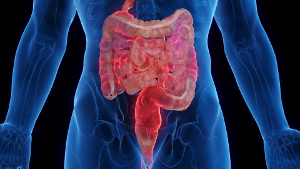 Promising results have been seen with the use of vitamin D supplements in the treatment of inflammatory bowel diseases such as ulcerous colitis and Crohn’s disease. However, there is missing information about blood levels of vitamin D and the prognosis for these patients. A new study that is published in International Journal of Surgery reveals that blood levels of vitamin D are directly linked to the risk of surgical removal of morbid intestinal tissue.
Promising results have been seen with the use of vitamin D supplements in the treatment of inflammatory bowel diseases such as ulcerous colitis and Crohn’s disease. However, there is missing information about blood levels of vitamin D and the prognosis for these patients. A new study that is published in International Journal of Surgery reveals that blood levels of vitamin D are directly linked to the risk of surgical removal of morbid intestinal tissue. Ever since the COVID-19 pandemic started, scientists have focused on vitamin D. This nutrient strengthens and regulates the immune defense in a number of different ways. Numerous studies have shown that lack of vitamin D increases the risk of being infected with COVID-19 and running into complications. High-dosed vitamin D supplementation of COVID-19 patients can lower their risk of being admitted to the intensive care unit and dying of the disease, according to a new meta-analysis that is published in Nutrients.
Ever since the COVID-19 pandemic started, scientists have focused on vitamin D. This nutrient strengthens and regulates the immune defense in a number of different ways. Numerous studies have shown that lack of vitamin D increases the risk of being infected with COVID-19 and running into complications. High-dosed vitamin D supplementation of COVID-19 patients can lower their risk of being admitted to the intensive care unit and dying of the disease, according to a new meta-analysis that is published in Nutrients. Millions of people worldwide drink arsenic-polluted water regularly. Arsenic is a toxin that is known to cause different types of cancer, including skin cancer. According to a new study published in American Journal of Cancer Research, it looks as if the active form of vitamin D, calcitriol, can prevent the onset of arsenic-induced skin cancer in a special type of skin cells. Calcitriol also appears to be able to prevent other types of cancer caused by arsenic.
Millions of people worldwide drink arsenic-polluted water regularly. Arsenic is a toxin that is known to cause different types of cancer, including skin cancer. According to a new study published in American Journal of Cancer Research, it looks as if the active form of vitamin D, calcitriol, can prevent the onset of arsenic-induced skin cancer in a special type of skin cells. Calcitriol also appears to be able to prevent other types of cancer caused by arsenic.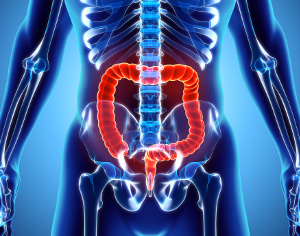 Colorectal cancer is one of the most common cancer forms in Denmark, which is why prevention is so important. According to a new American study that is published in Gastroenterology, increased intake of vitamin D appears to protect against bowel cancer, especially in people younger than 50 years. It even looks as if vitamin D may prevent intestinal polyps that can turn into cancer in some cases. The scientists say that higher intake of vitamin D may be relevant for prevention and may also serve as an inexpensive supplement to screening tests that are merely used for early diagnosis.
Colorectal cancer is one of the most common cancer forms in Denmark, which is why prevention is so important. According to a new American study that is published in Gastroenterology, increased intake of vitamin D appears to protect against bowel cancer, especially in people younger than 50 years. It even looks as if vitamin D may prevent intestinal polyps that can turn into cancer in some cases. The scientists say that higher intake of vitamin D may be relevant for prevention and may also serve as an inexpensive supplement to screening tests that are merely used for early diagnosis.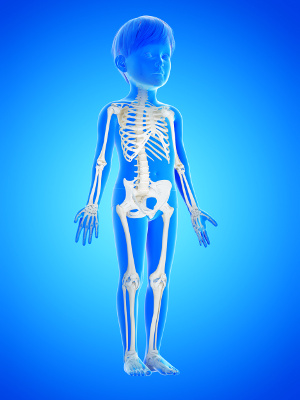
 Photodynamic therapy is a kind of light therapy that is used to treat skin cancer, psoriasis, and other skin diseases. According to a review article published in Nutrients, vitamin D supplementation can improve the outcome of the treatment. In fact, vitamin D appears to have several positive effects on skin health. Taken in large doses, the vitamin can even repair skin damage caused by sunburns.
Photodynamic therapy is a kind of light therapy that is used to treat skin cancer, psoriasis, and other skin diseases. According to a review article published in Nutrients, vitamin D supplementation can improve the outcome of the treatment. In fact, vitamin D appears to have several positive effects on skin health. Taken in large doses, the vitamin can even repair skin damage caused by sunburns.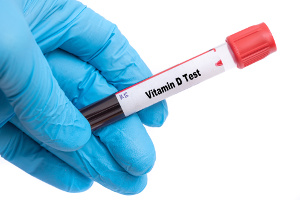 Many critically ill patients lack vitamin D to an extent that can be life-threatening. This also goes for patients hospitalized with COVID-19. A large meta-analysis concludes that supplementation with vitamin D can lower all-cause mortality and reduce the duration of patients’ stay in intensive care. In the meta-analysis, the researchers look at the mechanisms that enable vitamin D to regulate inflammation and oxidative stress, which can lead to organ failure in critically ill patients.
Many critically ill patients lack vitamin D to an extent that can be life-threatening. This also goes for patients hospitalized with COVID-19. A large meta-analysis concludes that supplementation with vitamin D can lower all-cause mortality and reduce the duration of patients’ stay in intensive care. In the meta-analysis, the researchers look at the mechanisms that enable vitamin D to regulate inflammation and oxidative stress, which can lead to organ failure in critically ill patients. Inflammatory bowel diseases (IBD) and irritable bowel syndrome (IBS) are common chronic bowel diseases. Earlier studies show that supplementation with vitamin D can alleviate local symptoms by strengthening the immune defense and controlling inflammatory processes. In a new review article, scientists have looked closer at how supplements of vitamin D can also improve mental health in patients with inflammatory bowel diseases and irritable bowel problems.
Inflammatory bowel diseases (IBD) and irritable bowel syndrome (IBS) are common chronic bowel diseases. Earlier studies show that supplementation with vitamin D can alleviate local symptoms by strengthening the immune defense and controlling inflammatory processes. In a new review article, scientists have looked closer at how supplements of vitamin D can also improve mental health in patients with inflammatory bowel diseases and irritable bowel problems.
 Lack of vitamin D is a global health problem that increases mortality rates. At this point, many studies have shown that having adequate amounts of vitamin D in the blood can lower your risk of cardiovascular disease, which is the leading cause of death. In a new review article that is published in Nutrients, the authors look closer at vitamin D supplementation to see if it can prevent stroke and speed up rehabilitation. It is essential that vitamin D supplements have good bioavailability so they can optimize blood levels of the nutrient.
Lack of vitamin D is a global health problem that increases mortality rates. At this point, many studies have shown that having adequate amounts of vitamin D in the blood can lower your risk of cardiovascular disease, which is the leading cause of death. In a new review article that is published in Nutrients, the authors look closer at vitamin D supplementation to see if it can prevent stroke and speed up rehabilitation. It is essential that vitamin D supplements have good bioavailability so they can optimize blood levels of the nutrient.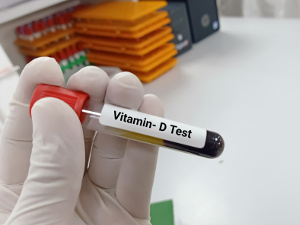 Cancer patients often have overwhelming pain that turns up as their disease progresses. The whole purpose with palliative care is to relieve the pain, and opioids such as morphine are often used for this purpose. However, according to a Swedish study published in the science journal Cancer, more and more terminal cancer patients who are given high-dosed supplements of vitamin D have less need for pain treatment and generally feel less tired. Vitamin D deficiencies are common among cancer patients and may contribute to a shorter life expectancy.
Cancer patients often have overwhelming pain that turns up as their disease progresses. The whole purpose with palliative care is to relieve the pain, and opioids such as morphine are often used for this purpose. However, according to a Swedish study published in the science journal Cancer, more and more terminal cancer patients who are given high-dosed supplements of vitamin D have less need for pain treatment and generally feel less tired. Vitamin D deficiencies are common among cancer patients and may contribute to a shorter life expectancy. The number of older people is increasing rapidly, which means more and more people suffer from different types of dementia. Vitamin D supplementation may help prevent dementia or delay its progression, according to a population study that is published in Alzheimer’s & Dementia: Diagnosis, Assessment & Disease Monitoring. It is important to have optimal blood levels of the nutrient throughout life, simply because it often takes years for dementia to develop, and because vitamin D has many different functions that are relevant for brain health.
The number of older people is increasing rapidly, which means more and more people suffer from different types of dementia. Vitamin D supplementation may help prevent dementia or delay its progression, according to a population study that is published in Alzheimer’s & Dementia: Diagnosis, Assessment & Disease Monitoring. It is important to have optimal blood levels of the nutrient throughout life, simply because it often takes years for dementia to develop, and because vitamin D has many different functions that are relevant for brain health. Lack of vitamin D is rather common. It increases the risk of infections and a host of serious diseases. German cancer researchers have estimated that if all Germans from 50 years and older took a daily vitamin D supplement it would prevent 30,000 cancer-related deaths annually and gain over 300,000 years of life. In addition to that, it would lead to huge reductions in public healthcare. The health-related and financial benefits of optimizing the population’s vitamin D status fits in nicely with previous research and calculations from Denmark.
Lack of vitamin D is rather common. It increases the risk of infections and a host of serious diseases. German cancer researchers have estimated that if all Germans from 50 years and older took a daily vitamin D supplement it would prevent 30,000 cancer-related deaths annually and gain over 300,000 years of life. In addition to that, it would lead to huge reductions in public healthcare. The health-related and financial benefits of optimizing the population’s vitamin D status fits in nicely with previous research and calculations from Denmark. Many of us contract respiratory infections during the winter period. In many cases, the underlying cause is a deficiency of vitamin D, a key nutrient for immune health. Vitamin D also regulates the body’s inflammatory response, thereby preventing it from getting out of hand and becoming complicated or life-threatening. In a new review article, researchers looked at vitamin D’s role in preventing and fighting acute respiratory infections such as COVID-19 and influenza with particular focus on children and youngsters. The scientists point out that many people need to take higher doses of vitamin D to optimize levels of the nutrient in their blood.
Many of us contract respiratory infections during the winter period. In many cases, the underlying cause is a deficiency of vitamin D, a key nutrient for immune health. Vitamin D also regulates the body’s inflammatory response, thereby preventing it from getting out of hand and becoming complicated or life-threatening. In a new review article, researchers looked at vitamin D’s role in preventing and fighting acute respiratory infections such as COVID-19 and influenza with particular focus on children and youngsters. The scientists point out that many people need to take higher doses of vitamin D to optimize levels of the nutrient in their blood. Vitamin D plays a major role in our health. The main focus, however, is on vitamin D’s importance for bones, while many health professionals are totally unaware of the nutrient’s other essential functions. According to a review article published in Nutrients, half the global population has low vitamin D levels in the blood, which increases the risk of cardiovascular disease, hypertension, cancer, type 2 diabetes, Alzheimer’s disease, respiratory infections like COVID-19, and early death. The authors also mention that vitamin D science is often inadequate or misleading because studies focus on supplementation rather than looking at blood levels of 25(OH)D. Consequently, trials are often made with far too small vitamin D doses or with too a short a trial period. In either case, blood levels of vitamin D fail to reach their optimum. What is more, levels of 25(OH)D in the blood should ideally be above 75 nmol/L in order to protect against cardiovascular disease, cancer, and early death. Because this threshold level is higher than the official threshold levels, the scientists recommend high-dosed vitamin D levels as a way to reach an optimal nutrient status.
Vitamin D plays a major role in our health. The main focus, however, is on vitamin D’s importance for bones, while many health professionals are totally unaware of the nutrient’s other essential functions. According to a review article published in Nutrients, half the global population has low vitamin D levels in the blood, which increases the risk of cardiovascular disease, hypertension, cancer, type 2 diabetes, Alzheimer’s disease, respiratory infections like COVID-19, and early death. The authors also mention that vitamin D science is often inadequate or misleading because studies focus on supplementation rather than looking at blood levels of 25(OH)D. Consequently, trials are often made with far too small vitamin D doses or with too a short a trial period. In either case, blood levels of vitamin D fail to reach their optimum. What is more, levels of 25(OH)D in the blood should ideally be above 75 nmol/L in order to protect against cardiovascular disease, cancer, and early death. Because this threshold level is higher than the official threshold levels, the scientists recommend high-dosed vitamin D levels as a way to reach an optimal nutrient status. Vitamin D is involved in the development of the brain structure and in brain functions. According to a review article that is published in Nutrients, vitamin D is of particularly great importance to the mental health of children and teenagers due to its long-term effect. This subject is highly topical as it is known that the widespread lack of vitamin D among children increases their risk of anxiety, depression, aggressive behavior, and other mental problems. It is vital for children and teenagers to get plenty of sun and supplements if necessary so they are sure to meet the new guidelines for vitamin D.
Vitamin D is involved in the development of the brain structure and in brain functions. According to a review article that is published in Nutrients, vitamin D is of particularly great importance to the mental health of children and teenagers due to its long-term effect. This subject is highly topical as it is known that the widespread lack of vitamin D among children increases their risk of anxiety, depression, aggressive behavior, and other mental problems. It is vital for children and teenagers to get plenty of sun and supplements if necessary so they are sure to meet the new guidelines for vitamin D.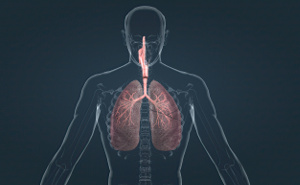 COPD, a lung disease that is primarily a result of smoking, is one of the leading causes of death. Asthma, however, may also become life-threatening if it is left untreated. According to a meta-analysis published in Journal of Global Health, vitamin D supplementation may improve lung function in both diseases. The authors look at how vitamin D strengthens the immune defense and controls inflammation.
COPD, a lung disease that is primarily a result of smoking, is one of the leading causes of death. Asthma, however, may also become life-threatening if it is left untreated. According to a meta-analysis published in Journal of Global Health, vitamin D supplementation may improve lung function in both diseases. The authors look at how vitamin D strengthens the immune defense and controls inflammation. Multiple studies have shown that vitamin D plays a key role in gut health by supporting the protective mucosa, the massive gut flora, the intestinal immune defense, and the regulation of inflammatory processes. According to a new review article published in Nutrients, lack of vitamin D, which is quite common, may therefore result in an increased risk of irritable bowel syndrome (IBS) and inflammatory bowel disease (IBD), which more and more people are affected by.
Multiple studies have shown that vitamin D plays a key role in gut health by supporting the protective mucosa, the massive gut flora, the intestinal immune defense, and the regulation of inflammatory processes. According to a new review article published in Nutrients, lack of vitamin D, which is quite common, may therefore result in an increased risk of irritable bowel syndrome (IBS) and inflammatory bowel disease (IBD), which more and more people are affected by. Vitamin D2 occurs naturally in foods from the plant kingdom while vitamin D3 comes from animal sources. It is also vitamin D3 that we synthesize in our skin in response to sun exposure. Scientists from the Universities of Surrey and Brighton in Great Britain have now discovered that the two types of vitamin D have entirely different effects. They therefore sow doubts about vitamin D2’s role in human health, whereas vitamin D3 is known for its vital role in helping the immune system in its fight against infections such as COVID-19. Most cells in the body have vitamin D receptors, and the nutrient is also important for cancer prevention, the nervous system, our mood, and a number of other functions. Vitamin D3 from food, supplements, or sunshine must be activated in the body before it can be utilized.
Vitamin D2 occurs naturally in foods from the plant kingdom while vitamin D3 comes from animal sources. It is also vitamin D3 that we synthesize in our skin in response to sun exposure. Scientists from the Universities of Surrey and Brighton in Great Britain have now discovered that the two types of vitamin D have entirely different effects. They therefore sow doubts about vitamin D2’s role in human health, whereas vitamin D3 is known for its vital role in helping the immune system in its fight against infections such as COVID-19. Most cells in the body have vitamin D receptors, and the nutrient is also important for cancer prevention, the nervous system, our mood, and a number of other functions. Vitamin D3 from food, supplements, or sunshine must be activated in the body before it can be utilized.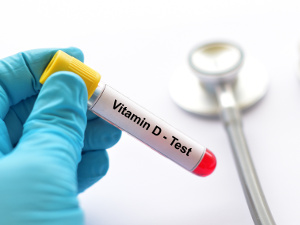 Lack of vitamin D is linked to an increased risk of virus infections, respiratory diseases, cardiovascular diseases, dementia, cancer, and osteoporosis. However, the official recommendations for vitamin D intake are way too low, according to two new studies that were presented at the American Heart Association’s Scientific Sessions in Philadelphia in 2023. In addition, a German study of athletes has shown that it is better to take individually tailored vitamin D supplements to optimize blood levels of the nutrient instead of using a “one-size-fits-all” solution.
Lack of vitamin D is linked to an increased risk of virus infections, respiratory diseases, cardiovascular diseases, dementia, cancer, and osteoporosis. However, the official recommendations for vitamin D intake are way too low, according to two new studies that were presented at the American Heart Association’s Scientific Sessions in Philadelphia in 2023. In addition, a German study of athletes has shown that it is better to take individually tailored vitamin D supplements to optimize blood levels of the nutrient instead of using a “one-size-fits-all” solution.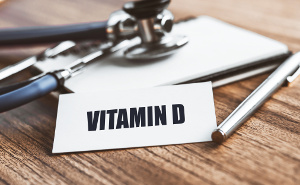
 Around one billion people worldwide are believed to lack vitamin D. This gives cause for concern when it comes to public health, also with regard to pregnant women and their children. Several studies link vitamin D deficiency to a number of different pregnancy-related complications such as preeclampsia, increased risk of preterm delivery, and the need for a Caesarean section. There is also a risk of low birth weight, weak bones, and later development of bronchitis, asthma, type 1 diabetes, sclerosis, and autism, according to a review article published in Nutrients. The authors believe it is necessary to give supplements to help correct vitamin D deficiencies in the expecting mothers and even in the children after birth to prevent many of the diseases and complications linked to low vitamin D status.
Around one billion people worldwide are believed to lack vitamin D. This gives cause for concern when it comes to public health, also with regard to pregnant women and their children. Several studies link vitamin D deficiency to a number of different pregnancy-related complications such as preeclampsia, increased risk of preterm delivery, and the need for a Caesarean section. There is also a risk of low birth weight, weak bones, and later development of bronchitis, asthma, type 1 diabetes, sclerosis, and autism, according to a review article published in Nutrients. The authors believe it is necessary to give supplements to help correct vitamin D deficiencies in the expecting mothers and even in the children after birth to prevent many of the diseases and complications linked to low vitamin D status. According to WHO, chronic inflammation is the leading cause of death worldwide. Although it is not something that can be felt as such, chronic inflammation sets the stage for a host of different diseases. In a new review article that is published in StatPearls, the authors look closer at why chronic inflammation is so dangerous and how a healthier lifestyle with vitamin D, selenium, magnesium, zinc, and fish oil can help fight the inflammation and prevent the many different diseases and early death that follow in its wake.
According to WHO, chronic inflammation is the leading cause of death worldwide. Although it is not something that can be felt as such, chronic inflammation sets the stage for a host of different diseases. In a new review article that is published in StatPearls, the authors look closer at why chronic inflammation is so dangerous and how a healthier lifestyle with vitamin D, selenium, magnesium, zinc, and fish oil can help fight the inflammation and prevent the many different diseases and early death that follow in its wake.
 Zinc is of vital importance to the immune defense, our mental balance, fertility, skin, hair, sense of taste, and numerous other functions. According to a new study that is published in Current Research in Physiology, zinc interacts closely with vitamin D and is important for our cells’ ability to absorb vitamin D. Conversely, vitamin D supports the uptake of zinc in the intestines and supports various zinc-dependent cell functions. According to the new study, lack of one or both nutrients can result in a host of different problems such as infections, poor wound healing, muscle diseases, cardiovascular disease, neurological disorders, osteoporosis, cancer, and many other diseases. This is a problem because zinc and vitamin D deficiencies are rather common – mainly because of unhealthy eating habits, lack of sunlight, ageing, overweight, and the use of certain types of medicine.
Zinc is of vital importance to the immune defense, our mental balance, fertility, skin, hair, sense of taste, and numerous other functions. According to a new study that is published in Current Research in Physiology, zinc interacts closely with vitamin D and is important for our cells’ ability to absorb vitamin D. Conversely, vitamin D supports the uptake of zinc in the intestines and supports various zinc-dependent cell functions. According to the new study, lack of one or both nutrients can result in a host of different problems such as infections, poor wound healing, muscle diseases, cardiovascular disease, neurological disorders, osteoporosis, cancer, and many other diseases. This is a problem because zinc and vitamin D deficiencies are rather common – mainly because of unhealthy eating habits, lack of sunlight, ageing, overweight, and the use of certain types of medicine. "After about one week of taking the Q10 supplement I could feel a huge difference," says 23-year old Alan Piccini, who has been suffering from extreme fatigue and muscle aches ever since he was a child.
"After about one week of taking the Q10 supplement I could feel a huge difference," says 23-year old Alan Piccini, who has been suffering from extreme fatigue and muscle aches ever since he was a child. “Taking capsules with co-enzyme Q10 has freed me of the severe side effects of my cholesterol lowering medicine,” Mrs Franken explains.
“Taking capsules with co-enzyme Q10 has freed me of the severe side effects of my cholesterol lowering medicine,” Mrs Franken explains.